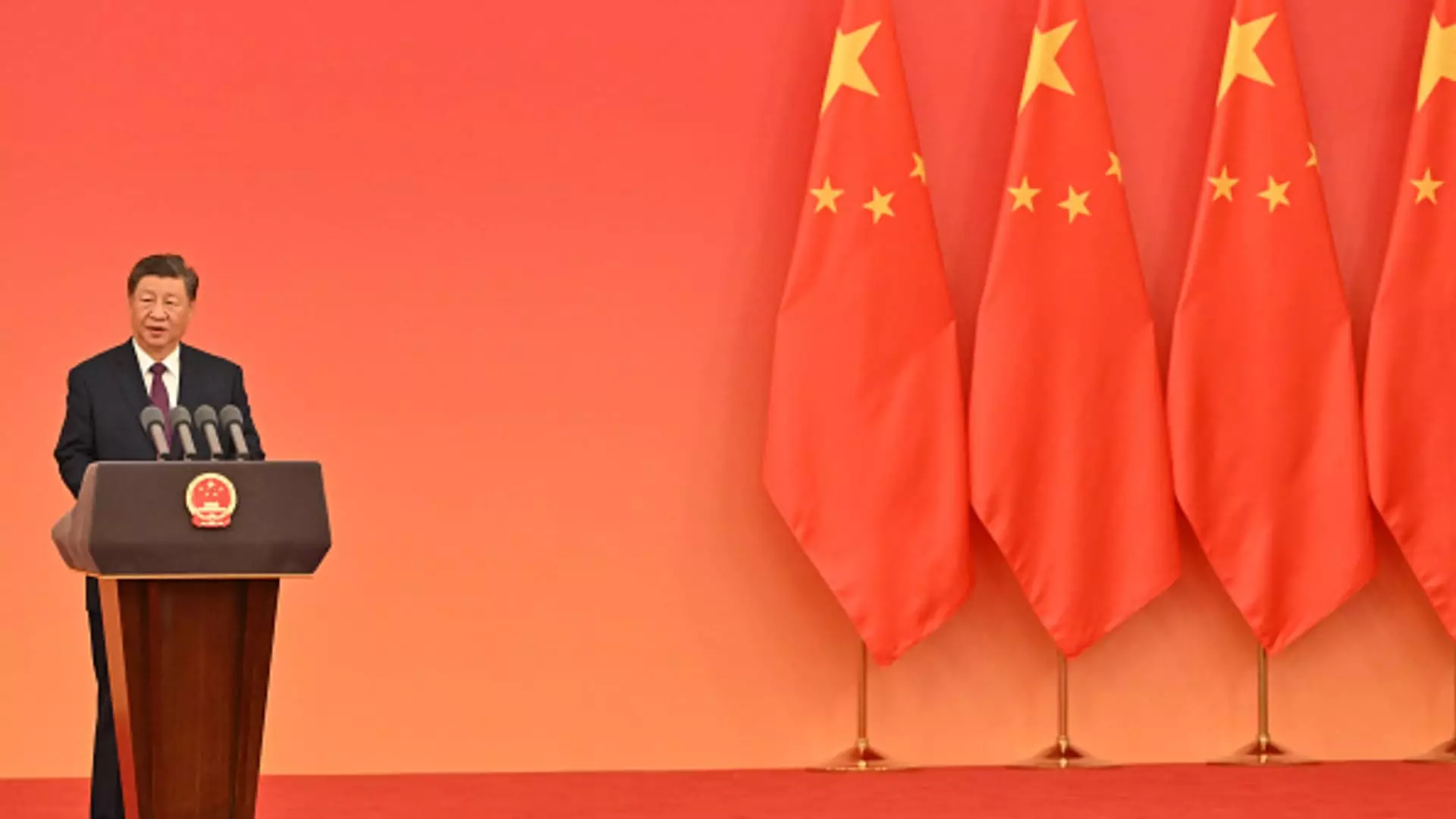In a pivotal moment for China’s future, President Xi Jinping addressed the nation, asserting that no challenge is insurmountable for the country. This assertion came during a ceremonial event marking the 75th anniversary of the People’s Republic of China, a date that resonates deeply in the national psyche. Xi’s remarks painted a picture of unwavering resilience in the face of adversity, reflecting a leadership style that privileges strength and unity. As Xi stated, “The path ahead will definitely see challenges,” he underscored the necessity for perseverance, inviting the populace to embrace the uncertainties and risks that lie ahead.
Such declarations are not mere platitudes; they encapsulate a broader narrative that the Communist Party of China (CPC) has been cultivating for decades. Xi’s insistence on the CPC’s preeminence in steering the nation towards unity and prosperity signals a continued emphasis on centralized leadership as the cornerstone of national policy. He reiterated the importance of overcoming historical grievances and emphasized cooperation—economic and cultural—with areas like Taiwan, which the CPC views as integral to the nation’s fabric.
In his speech, the theme of Taiwan reunification emerged strongly, as Xi characterized this ambition as a historical inevitability. China’s narrative regarding Taiwan is deeply entrenched, and the CPC’s portrayal of Taiwan as a separatist entity reinforces its claims over the island. This uncompromising stance is likely to exacerbate tensions with the self-governing region, which remains staunchly resistant to Beijing’s overtures.
The rhetoric surrounding Taiwan is intricately tied to China’s broader relations with global powers, particularly the United States and nations in Europe. The last few years have seen heightened tensions, primarily fueled by tariffs and technological restrictions imposed by Western nations. While Xi refrained from naming specific adversaries in his recent speech, his remarks did seek to frame China as a defender of globalization—a move that may be interpreted as an appeal for international solidarity against perceived external pressures.
Beyond Taiwan, Xi articulated a vision of “national rejuvenation” that he envisages for all territories deemed by China as its own, including Hong Kong and Macao. This ambition aligns with the intent to strengthen the cultural and economic interdependence between these regions and the mainland. The CPC’s narrative around national rejuvenation is a potent tool for galvanizing domestic support and justifying policies that may be viewed as authoritative or aggressive by external observers.
Moreover, Xi’s focus on “friendly” countries reveals a deliberate strategy to foster diplomatic relations, contrasting the rhetoric of confrontation that often characterizes international relations. The commendation of those who support China’s developmental agenda signifies an intent to cultivate alliances that align with Chinese economic goals while attempting to counteract Western influence.
Xi’s statements are also contextualized against the backdrop of economic fluctuations China has experienced, particularly during the past few years. The resurgence of Chinese markets, particularly stock indexes, indicates the government’s commitment to rejuvenating its economy. Recent directives from high-level meetings signal efforts to stabilize the real estate market and bolster fiscal and monetary policy, echoing a sense of urgency within the CPC to maintain economic growth as a priority.
However, challenges remain, as the People’s Bank of China has recently reduced interest rates, yet substantial fiscal support from the Ministry of Finance is still anticipated. The navigation of China’s economic policies in the face of both internal and external challenges will likely continue to be a decisive factor in how successfully these long-term ambitions can be realized.
Xi Jinping’s recent address serves as both a reaffirmation of commitment to the principles that underpin the CPC and a strategic call to the nation to brace for the challenges that await. The interplay between economic stability, geopolitical tensions, and the aspiration for national reunification shapes a complex landscape that Xi is keen to navigate. As the world watches, the outcomes of these policies will not only define China’s trajectory but will also significantly impact global dynamics in the years to come.

